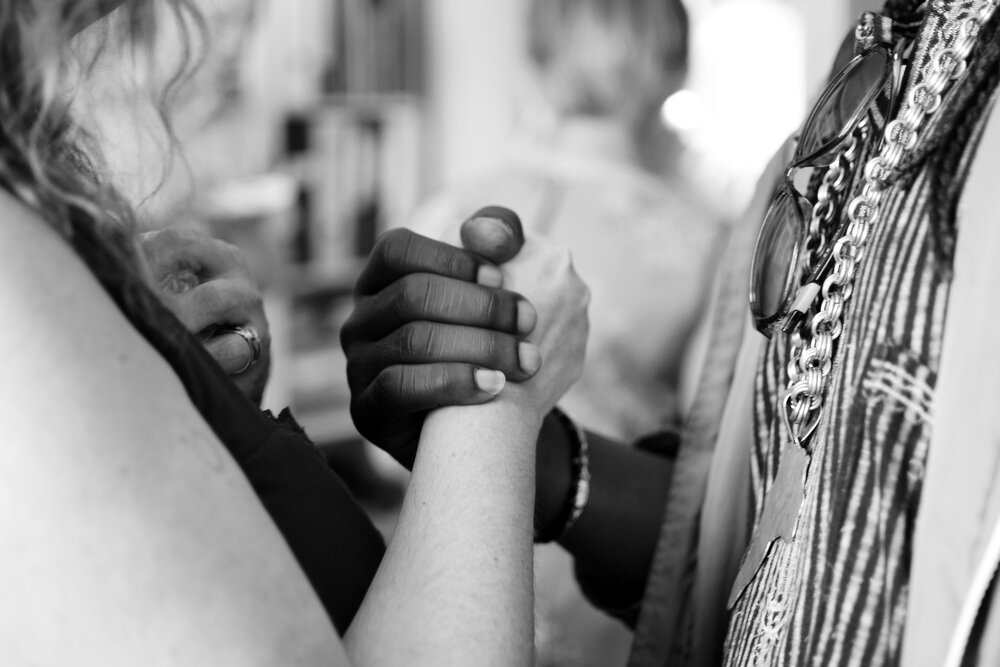Humans beings zoom in on each others’ differences.
We notice skin, hair and eye color. We judge heights and weights. We hear different languages, accents and dialects. We express various behaviors and attitudes. Two people may react differently to a similar circumstance. We identify with nations, ethnic groups and spiritual beliefs. Sexual preference and gender identity can have broad spectrums. Here, in Washington DC, a wide array of diversity is celebrated.
It is human nature to have an “us” and a “them.” We are drawn to those familiar to us and are distant with strangers. This is called kin selection, an evolutionary strategy that favors the reproductive success of an organism’s relatives. We prefer those more relatable to us.
Consider your brother and a coworker were suspended off a dangerous cliff, gripping the edge for their lives – and you have time to save only one. Who would you choose? Most would choose their brother, even in cases of neutral or poor ties with your brother – he’s still your brother. Expanding this concept, compare a family friend and a neighbor next door. How about a compatriot and a foreigner? And a human and a chimpanzee? The probability of us preferring the one most similar is greater than a coin flip.
Kin selection based on geographic proximity may look like: individual < family < community < city < state < region < nation < climate < continent < planet.
This sense of “us versus them” is the root of competition. Competition is a rivalry between two entities for scarce resources, either physical, social or cultural. Competition is celebrated in athletics, with modern-day gladiators and performance-based games. We see competition in market economics and business. We see it with food, mates, wealth and fame. Competition can start disputes and wars.
A danger of competition is a myopic view of the world. It creates a “them,” an other not relatable. The gaps spawn factions – supporters siding with you with demographic, psychographic, and/or ideological similarities. Our preference for familiarity creates competition with those who are not familiar. Suburban Americans can idolize and gossip about their financially-prosperous neighbors. In World War II, Americans dehumanized Germans and Japanese to promote the war effort, similar to Nazi’s dehumanization of Jews. In Saudi Arabia prior to 2018, women driving cars was illegal; pro- and against- factions existed until the crown prince decreed the change.
Humans are stuck in “us versus them” mentalities at the global scale, specifically because we have trouble seeing outside of ourselves. When we look at dogs, we see a multitude of breeds and pedigrees. A diverse range of fur color and coarseness, sizes and sounds. We say each has a “personality.” Young dogs (called puppies) love play and exploration. To dog-owners, their dog is unique and different. However, we recognize the collective as domesticated dogs of species Canis lupus. Dogs have similar habits and features. Dogs are born with four legs, a tail and snout. All react to human displays of excitement and sternness. Each has varying spikes of energy and sleepiness. Dogs quest for food and rewards. Each are capable of the full spectrum of canine behavior, from aggression to love.
Humanity is progressing toward unification. Humans have a chance at viewing each other like we do dogs: we recognize we are ultimately the same. At a macro level, all humans express similar behaviors. Young humans (called children) require intense care and attention. Humans are drawn to love and security and withdraw from fear. Humans have an inner voice full of self-doubt and worry. Each human can express the widest range of emotion with the right triggers. Humans are consumers of resources. We each need sleep. We each build habitats to control climate and for safety. Humans believe in social constructs such as possessions and money. We wear clothes and accessories to display our socioeconomic status, preferences, culture and beliefs. All seek to be important, understood, and loved.
Seeing ourselves as a single species will help us zoom out and strategically tackle larger global issues. The distraction is the competition between nations with physical war, trade war, and cybersecurity war. The distraction is the political campaigning. The distraction is the debate between facts and opinions on whether the issues truly exist. The global land-ocean temperature index continues to rise since the early 1900s. We continue large-scale and civil wars. Income inequality is rising. 780 million people remain without reliable, safe drinking water. To tackle the largest upcoming challenges facing our species, a single nation cannot secure the future of our species alone.
Cooperation between nations and peoples can drive meaningful change. The most successful businesses have a clear vision, mission and strategy and widely communicates them internally. Humans are unique in that we create imaginary fictions, and the belief in them inspires behavioral change. Any population can be guided by the same principles. Where competition is a zero-sum game, with clear winners and losers, cooperation develops synergies, boosting the production and social value more than the sum of its parts. Focusing on the bigger picture speeds up our execution. A unified society with a compelling global vision can unleash our true potential as a species.
We remain in the “us versus them” mentality because we are unable to see humanity objectively. We are subjectively “stuck” in the human experience. And humans evolved competitive mentalities. It’s a default wiring of our system. How do we clearly see ourselves as one?
Maturing the collective consciousness enough to “wake up” can break our evolutionary bonds. We can lose our individual egos in favor of a global system. We can altruistically help others. Those that practice mindfulness, meditation and yoga understand this. We can free ourselves from ourselves with practice. Meditation continues its Western conquest in 2018 with an increasing number of businesses, teachers and spotlight in media. Meditation can relieve anxiety, stress, fatigue, mood disturbances and helps with sleep. This is a promising area to educate larger audiences to see outside of our egos.
Alternatively, a “them” may appear to help. The “them” we see in science fiction are zombies and aliens, an inhuman group that forces collaboration or doom. Popular books and movies portray deadly viruses or an invading alien race, where nations join forces to save mankind. These fictions are destructive in nature, and may achieve the goal of unification, may set us back with casualties and damages.
A more realistic “them” is the rise of intelligent computing. Intelligent computing may help us see ourselves for who we really are. Technologies such as IBM Watson have the potential to correctly diagnose human diseases better than humans can. Predictive analytics can help identify the moments in which you may give in to your cravings you’re hoping to curb. Today, technology empowers us to do more things we want to do by managing our lives. A world in which it helps us take the best courses of action for all aspects of our lives is easily imaginable.
Alternatively, we must reframe the “them.” The enemy is our tolerance for human suffering; we allow children in other nations to die from lack of water. It’s our desire to take and not give. It’s our demand for better products, no matter the cost. The enemy is our lust for more – bigger, faster and cheaper. Our enemy is not the individual responsible for these acts – the enemy is our human capacity to do these things. It could be any of us. For as noble you may be, surely you’ve succumb to some vices.
We are holding ourselves back from our true potential. Our aim should be a more mindful and conscious social structure, rewarding sustainable economic growth for the benefit of the world. Our evolutionary goal as a species is to reproduce and survive. Only human collaboration will make do with our available resources until we invent new ways to harvest more energy and materials. I look forward to a future where we colonize outside of Earth and tap into the seemingly-boundless energy of our sun. Though we are inefficient today, we will get there with focus and priority.







